Filter by:
News
Stay informed of all the latest developments in the field of water and subsurface.
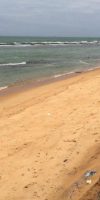
Urgent action needed to address climate change threats to coastal areas
Global coastal adaptations are ‘incremental in scale’, short-sighted and inadequate to address the root causes of vulnerability to climate change, according to an international team of researchers. The 17 experts, including Marjolijn Haasnoot and Gundula Winter from Deltares, have contributed to the paper, ‘Status of global coastal adaptation’, which is now published in Nature Climate Change.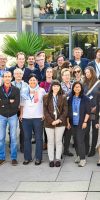
Offcial launch Horizon Europe project ‘NbS for Atlantic Regional Climate Resilience’
The European 'Nature Based Solutions for Atlantic Regional Climate Resilience’ (NBRACER) project, coordinated by Deltares, held its official kick-off meeting on 10-12 October 2023 in The Netherlands. The goal was to discuss the project’s ambitions, approaches, workflows and expected results.
Deltares opens new office in Indonesia
Deltares is pleased to announce the opening of a new office in Jakarta, Indonesia. With the opening of this new office, Deltares is well-placed to help tackle Indonesia's distinctive water, soil and environmental challenges. We will drive change, in close cooperation with our local partners.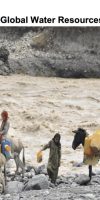
Global long-term water security under pressure
Climate change and human activity have caused the hydrological cycle to spin out of balance, a new report by the United Nations World Meteorological Organization (WMO) has found. The report provides a comprehensive assessment of global water resources.
Deltares 2023 impact report online
Our 2023 impact report is now online. Read nineteen stories that show how Deltares contributes to innovative and sustainable solutions for complex and urgent challenges, facing society.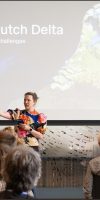
Scientific experts share findings and forge bonds at Future Dutch Delta Symposium
“Synthesising deep perspectives is hard, what we need is genuine curiosity for each other’s angles.” At the Future Dutch Delta symposium on 28 September, Deltares director Annemieke Nijhof called upon the Dutch water management research community to increase collaboration to achieve a common goal: providing the knowledge required to plan a resilient Dutch delta in decades to come.
Marjolijn Haasnoot appointed Professor of Climate Adaptation in Deltas and Coastal Regions
Marjolijn Haasnoot has been appointed Professor of Climate Adaptation in Deltas and Coastal Regions as of 1 November 2023. Haasnoot is a researcher at Deltares and currently serves as an Associate Professor in Climate Adaptation at the Department of Physical Geography.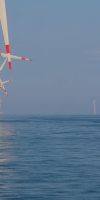
Wave movements in North Sea more predictable through machine learning
Accurate predictions of wave movements in the North Sea are crucial in marine and coastal engineering projects. For example, for installing an offshore wind turbine in the North Sea. The better the predictions of wave movements, the better you can plan the implementation of projects at sea. Experts from Coastal Structures & Waves at Deltares have discovered that you can better predict wave movements by linking process-based models to machine learning models.
Knowledge and innovation key at flood modelling symposium
Last week, Deltares organised a symposium in Delft on the 'Emulation of 2D flood modelling: exploring deep learning techniques and low-fidelity approaches'. Expectations were high given the growing interest in advanced ways of modelling floods. The symposium was attended by representatives from across the industry, including academia, universities, market parties, and policymakers.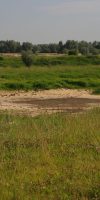
SpongeScapes project officially kicks off
The SpongeScapes Project, which accelerates solutions that improve sponge functioning of the soil, groundwater, and surface water systems, officially started on 1 October. Funded by the European Union as part of the Horizon Europe programme, the project brings together ten European partners. Deltares is responsible for the coordination of the project, which will run until 2027.
New Deltalife: Resilience in all respects
We have to adapt: not only in how we design and use our living environment, but also in how we handle and accept uncertainties. This is illustrated in our latest issue of Deltalife, our corporate magazine. This issue presents a richly varied picture of Deltares; work around the globe.-
Strategic research activity plan 2024 in draft
Deltares has published the Activity Plan Mission-driven research 2024 in draft. It outlines the main lines of the Strategic Research that Deltares will carry out in 2024.
